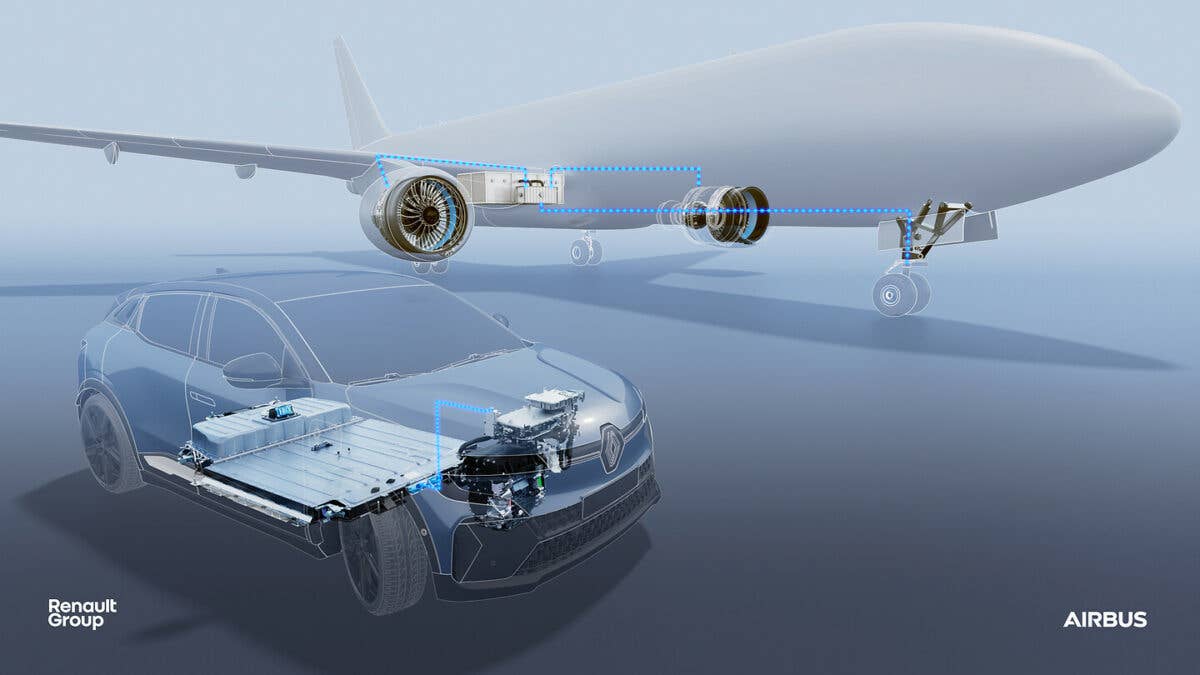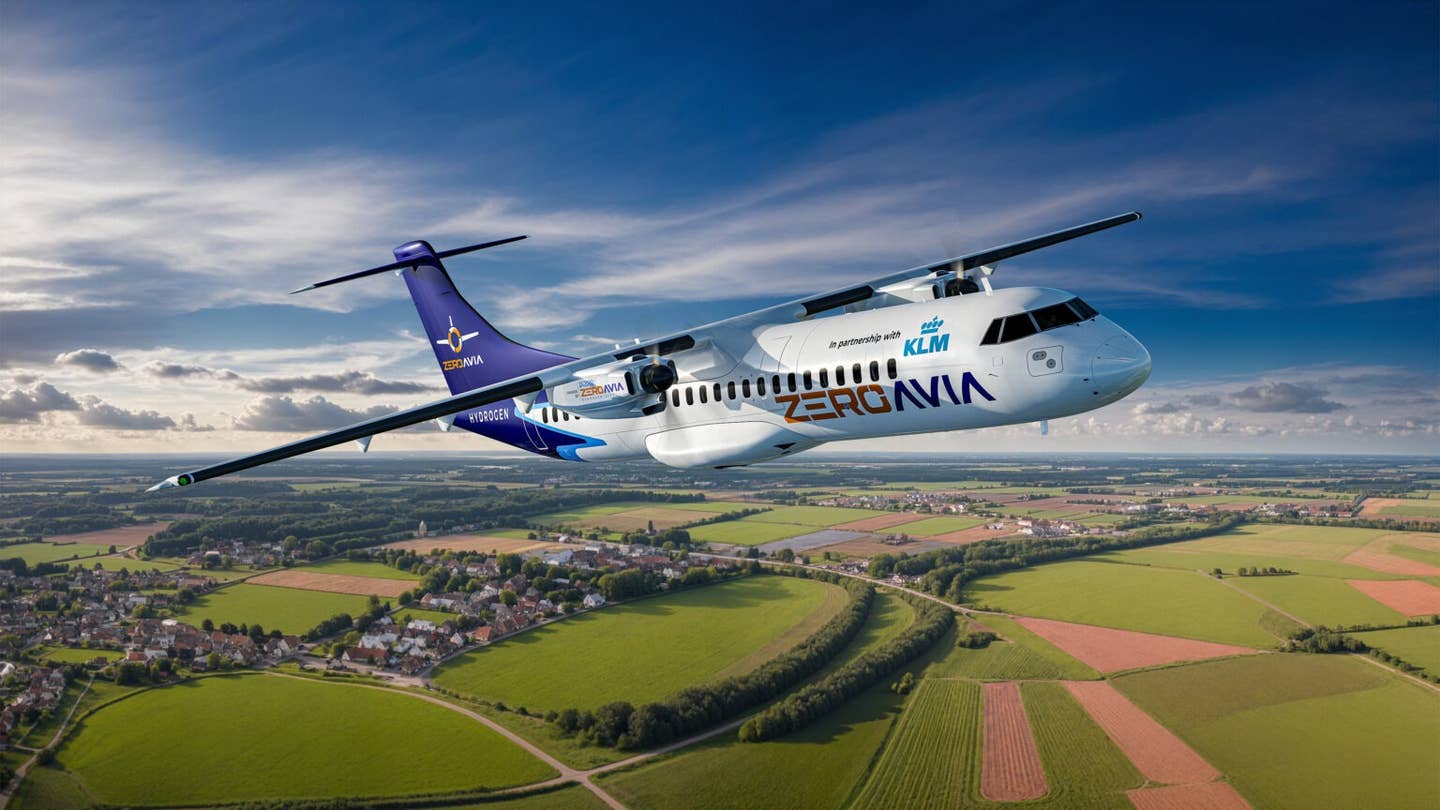Airbus, Renault To Work Together On Electric Vehicle Technology
Aircraft maker plans to benefit from car company’s years of EV experience.

As part of the partnership, engineering teams from Airbus and Renault will join forces to mature technologies related to energy storage. [Courtesy: Airbus]
Airbus said it entered a research and development agreement with auto manufacturer Renault Group under which the companies plan to work together using certain combined efforts between the aviation and automotive industries to bring electric power to more of their products.
Airbus said the partnership with Renault, which has many years of experience developing and manufacturing hybrid and electric vehicles, will help it develop hybrid-electric power technology for future aircraft.
As part of the agreement, engineering teams from Airbus and Renault “will join forces to mature technologies related to energy storage, which remains one of the main roadblocks for the development of long-range electric vehicles,” Airbus said.
The companies’ cooperation is expected to focus in part on improving energy management and battery weight, and finding the best ways to move beyond today’s lithium-ion battery designs. Airbus said future generations of batteries with so-called solid-state construction “could double the energy density of batteries in the 2030 timeframe.”
The companies also plan to study the potential life cycle of future batteries including environmental implications of their production, service life and potential for recycling.
“For the first time, two European leaders from different industries are sharing engineering knowledge to shape the future of hybrid-electric aircraft,’’ said Gilles Le Borgne, EVP, Engineering, Renault Group. “At Renault Group, our 10 years of experience in the electric vehicle value chain gives us some of the strongest feedback from the field and expertise in the performance of battery management systems.”
“This cross-industry partnership with Renault Group will help us mature the next generation of batteries as part of Airbus’ electrification roadmap,” said Sabine Klauke, chief technical officer for Airbus. “Reaching net zero carbon emissions by 2050 is a unique challenge that requires cooperation across sectors, starting today.”

Subscribe to Our Newsletter
Get the latest FLYING stories delivered directly to your inbox






